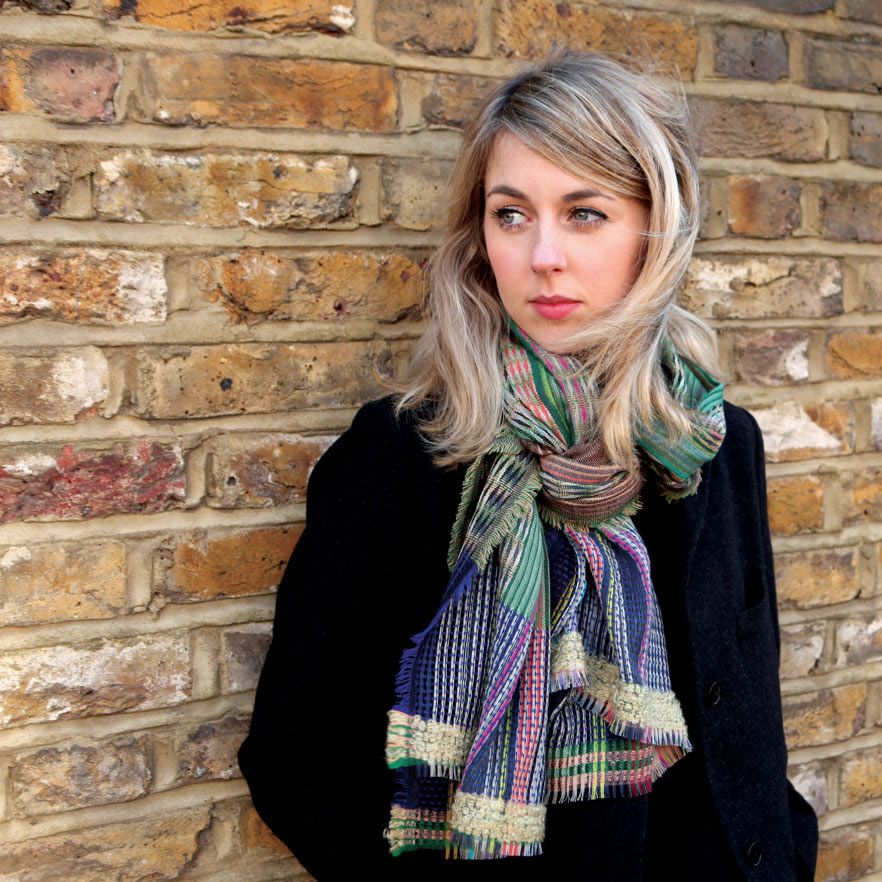Wallace Sewell

UK based British design studio, Wallace Sewell, was established by Harriet Wallace-Jones and Emma Sewell after graduating from The Royal College of Art in 1990. Their diverse portfolio includes scarves for the Tate museums as well as moquette fabric designs for Transport for London’s underground seating. We had the pleasure of catching up with Emma, to find out how they use wool and the future of their brand.
1. What is it about wool that makes it such a good fibre to work with?
Wool is my favourite fibre, as it is so versatile. It can feel soft or dry as a finished cloth. It can be dyed into vibrant shades and also be milled (felted) to create a wide variety of finishes from heavy-duty felts to delicate yet stable cloths. It can keep you warm or cool and it’s natural bounciness means it resists creasing and recovers well from being folded. Plus, for all it’s amazing qualities it is affordable.
It’s natural properties of water resistance, flame retardancy coupled with it’s strength mean it’s also used for best quality moquette fabric for public transport.
2. You’ve had some exciting collaborations, with Designtex and Anthropologie to name just two. Do you have any future collaborations lined up that you could tell us about?
We have been busy this year working with new clients, such as Puma, Dulwich Picture House and Toast, creating bespoke scarves and throws and have also been working on a collection for a US lifestyle company that will be launching next year, plus a couple of new designs for Transport for London, which will be appearing on seats early next year. Plus we have just installed a solo exhibition at the Ruthin Craft Centre in North Wales, which runs till the end of January 2016.
3. Where do you source your material from?
We source all our yarns from UK suppliers, though some fibres will have been brought into the UK for spinning and weave all our cloth in Lancashire and ‘finish’ or wash it in Yorkshire.
4. How important is it that you do your production in the UK?
From day one, 23 years ago, we have always produced in the UK, as we value the expertise and versatility of the UK textile industry. It has always risen to any challenges we have thrown at it, from weaving odd combinations of yarn together to developing new methods for finishing and washing the cloth. In addition, we really enjoy the interaction with the teams we work within the industry and value the ease of communication that producing in the country allows.
5. What are your plans for your brand?
We have really enjoyed the collaborations and bespoke work we have been involved with recently and hope to expand this consultancy side of the business, working with new partners as it is always challenging and develops us as designers.





